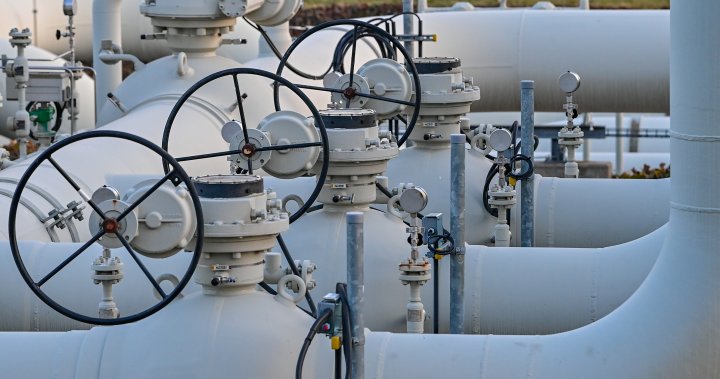
Russia cuts more natural gas exports to Europe amid Ukraine war
Global News
The European Union is trying to reduce gas imports from Russia by two-thirds by the end of 2022 and has used imported liquid gas from the United States to start making up that gap.
Russia reduced natural gas to Europe again Friday, including cutting flows by half to Italy and Slovakia and completely to France, as countries have worked to ease their dependence on Russian supplies amid the war in Ukraine.
It marks the third day of significant reductions to the fuel that powers industry and generates electricity in Europe, which also have hit Germany and Austria. It has further spiked already-high energy prices that are driving record inflation in the European Union.
Russia has blamed a technical problem for the cuts to the key Nord Stream 1 pipeline serving Germany and France, saying equipment being refurbished in Canada was stuck there because of Western sanctions.
Leaders in Germany and Italy called the reductions a political move, and it’s escalated the energy tensions in Europe, following Russia’s previous cutoff of natural gas to Poland, Bulgaria, Finland, the Netherlands and Denmark.
Ukrainian President Volodymyr Zelenskyy said Friday that the reductions are “blackmail (against) both individual countries and Europe as a whole.”
Russia told Slovakia’s state-controlled gas company SPP that it would reduce deliveries to the country by 50 per cent, SPP director Richard Prokypcak told a conference in Bratislava. The reason for the reduction has not been made clear.
Russian state-owned energy giant Gazprom told Italian gas company Eni on the same day that it would supply only 50 per cent of the amount of gas requested for Friday, reducing the flow to one of Europe’s biggest importers of Russian gas for a third day.
Gazprom reduced by 15 per cent Italy’s requested delivery on Wednesday. The ANSA news agency reported the Russian company dropped it by 35 per cent on Thursday. Italy gets 40 per cent of its gas from Russia but has been working to find alternative sources in countries like Algeria.













